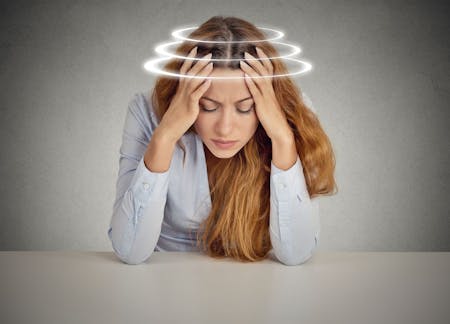
The body's ability to balance is dependent on vision, muscle and joint and inner ear (or vestibular) function. When there is a problem with any of these functions, a person can develop balance problems or vertigo.
What is a balance problem?
A balance disorder is a condition that can make you feel unsteady on your feet and may be accompanied by or caused by vertigo (dizziness).
There are many causes of balance problems, such as medications, ear infections, a head injury, or anything else that affects the inner ear or brain. Low blood pressure can lead to dizziness when you stand up too quickly. Neurological disorders and problems that affect the skeletal or visual systems, such as arthritis or eye muscle imbalance, can also cause balance disorders. Your risk of having balance problems increases as you get older.
What is vertigo?
Vertigo is a general term for different symptoms of imbalance. It can make you feel your environment is spinning around you when it isn't. It can make you feel unsteady or dizzy. If you are standing, sitting, or lying down, you might feel as if you are moving, spinning, or floating. If you are walking, you might suddenly feel as if you are tipping over.
Symptoms of vertigo can include:
- Dizziness or vertigo (a spinning sensation)
- Falling or feeling as if you are going to fall
- Lightheadedness, faintness, or a floating sensation
- Blurred vision
- Confusion or disorientation
The vestibular rehabilitation program at NPPT involves a comprehensive assessment of posture, balance, movement and visual systems. We then develop a plan that includes exercises and/or treatment designed to improve vertigo, balance and inner ear function. As balance improves, so will muscle tension, nausea, headaches and fatigue often associated with vestibular disorders.
For more information on vestibular and balance disorders, you can go to www.vestibular.org.
